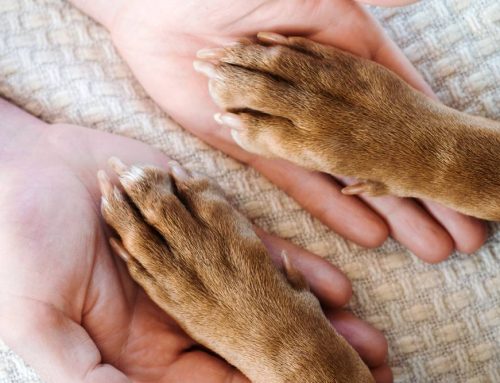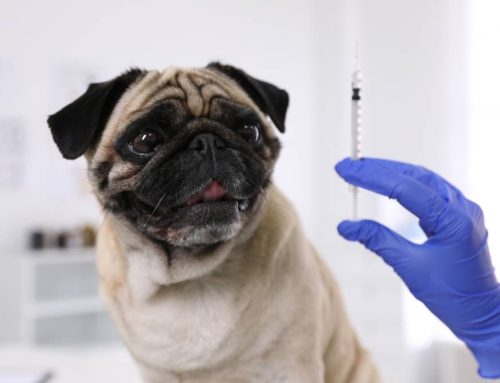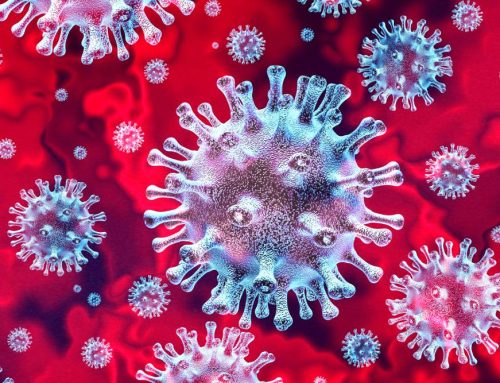At Animal Care Clinic, we get a lot of calls from clients who are concerned that their pet may have intestinal worms. They aren’t actually seeing any signs of worms…but they are seeing their pet scooting across their carpet, grass, tile, bed, (fill in the blank) on his or her furry bum. There’s an old wives tale out there that claims intestinal worms cause this particular behavior. But more likely than not, it has absolutely nothing to do with worms and everything to do with your pet’s anal glands.
Anal Whats???
When a pet is exhibiting scooting behavior, the first thing to suspect is a problem with the anal glands. The anal glands are two small sacs located just inside your pet’s anus. (If you look at your pet’s bum, they’re usually found in the 8 o’clock and 4 o’clock positions). Wild animals can empty these glands voluntarily for scent marking or in self-defense, the skunk brought most quickly to mind. Domestic animals have largely lost the ability to empty these glands voluntarily. Most healthy cats and dogs, however, get the job done by walking around and defecating normally. And if you’ve ever held a REALLY scared dog in your lap, you probably found out that those glands were working just fine….the hard way! Fright can cause spontaneous expression of the anal glands and the substance released is intensely foul smelling. Many people think it smells like rotten fish.
What’s the Problem?
Sometimes, for various reasons, some animals are unable to empty their anal glands on their own. If the animal is sick with loose stool or diarrhea, or has a chronic loose stool, the stool may not provide enough pressure to empty the glands fully, or at all. Scooting behavior sometimes follows diet changes in certain pets, as loose stool often results from a diet change. Animals that are overweight have less muscle tone and extra fat tissue which can get in the way of emptying the glands. If not emptied, the glands become impacted and uncomfortable. When this happens, dogs will usually scoot around on their bum in an attempt to empty the glands and relieve the pressure. Some dogs will lick the anal area repetitively. Cats may lick the fur off just under their tails. Any of these behaviors is embarrassing when company is over.
What to Do?
Get yer pet to the vet. The first thing to be done is rule out other potential causes for the scooting. In the majority of cases, the pet simply needs help emptying the glands. But there are other less common possible causes, including an irritating perianal tumor, diarrhea, matted hair, possible parasites. But most often, the anal glands will be very full, impacted, inflamed, or even infected. Here’s another reason why it’s important to visit the veterinarian. Some animals may be successful at taking care of the problem on their own by scooting and grooming. But if not, the impacted anal gland can quickly turn into a very painful infection. That infection can lead to abscess and rupture if left untreated. So basically, something that can easily be fixed can quickly turn into a smelly, painful condition, and a big vet bill.
What Happens at the Vet Clinic?
Anal glands can be emptied in two ways, externally or internally. Most likely the vet will don a lubricated glove, insert one finger into the anus, and use the finger and thumb to squeeze the glands one at a time into a tissue held externally. A full gland often feels like a small grape. (Ah, the scooting becomes understandable). After the glands have been emptied, the scooting should stop. If not, the glands should be re-checked. It is not unusual to have to empty the glands several times in a row to get things back to normal. If the glands are empty and scooting persists, another cause will need to be investigated.
Is This Going Happen All The Time?
Probably not. But with some lucky pets, the glands may need to be emptied every few weeks/months. You may choose to avoid the expense and inconvenience of repeatedly bringing your pet into the vet clinic and ask the vet to show you how to empty your pet’s anal glands at home. Or maybe not. You can also try switching your pet to a high fiber diet. This will produce a bulkier stool that may be more effective at emptying the glands during defecation.
Anal Sacculectomy
If your pet has chronic anal gland issues, you may wish to discuss removal of the glands with your veterinarian. Anal Sacculectomy is a procedure that results in the permanent removal of both anal glands. As with any surgical procedure, there are possible complications, but most experienced veterinary surgeons consider anal gland removal to be a relatively simple procedure. So there you have it. It’s highly unlikely the scooting is caused by worms. That doesn’t make it any less humiliating during a party. But now you know!







Leave A Comment